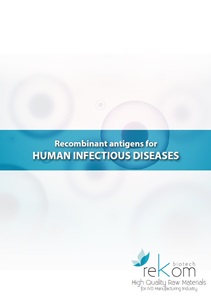Ehrlichiosis
Ehrlichiosis is a vector-borne disease caused by bacteria of the genus Ehrlichia, which attack white blood cells. This disease can be contracted by animals and humans, being Ehrlichia canis the one that most commonly affects the canine species. Ehrlichiosis is transmitted through tick bites, not through direct contact with infected animals. On rare occasions, it can be transmitted by blood transfusion. Although direct transmission ofE. canis from dogs to humans is not common, the possibility of contracting the disease through infected ticks represents a zoonotic transmission route. The most common symptoms depend on the phase of the disease, being mild to moderate, and can even cause death. The most common are fever, weight loss, lethargy, swollen joints, brain or glands, bleeding and seizures. The treatment consists of giving antibiotics, doxycycline. If treated early in the disease, it is almost completely curable. As prevention it is recommended to avoid tick bites, checking the dog before and after each walk, avoiding wet areas and thickets, combing the animal and using antiparasitic products. Since the symptoms are very similar to other diseases and the infection can remain active for a few weeks, or become chronic and cause long-term problems, early diagnosis is very important, and it can be done through peripheral blood smears with a microscope, a serological test or PCR.
Canine ehrlichiosis is present throughout the world, particularly in tropical and subtropical areas, and is more prevalent in the warmer months, as ticks are more active.
Human and animal infectious disease (mainly dogs)
At Rekom Biotech, we desing and manufacture IVD reagents for diagnosis of Ehrlichiosis. If you do not find what you are looking for, you can request our custom-made recombinant proteins/antibodies service. Do not hesitate to contact us!
Recombinant proteins
| DISEASE/MICROORGANISM | NAME | CAT NUMBER | DESCRIPTION | DETAILS |
|---|---|---|---|---|
|
Ehrlichiosis / Ehrlichia canis |
gp19 |
RAG0025
 |
Glycoprotein |
Polyclonal antibodies
| DISEASE/MICROORGANISM | NAME | CAT NUMBER | DESCRIPTION | DETAILS |
|---|---|---|---|---|
|
Ehrlichiosis caused by Ehrlichia canis |
Anti-gp19 |
PAB0013
 |
Polyclonal antibody against gp19 for Ehrlichia canis |
How to reconsitute lyophizated vials




